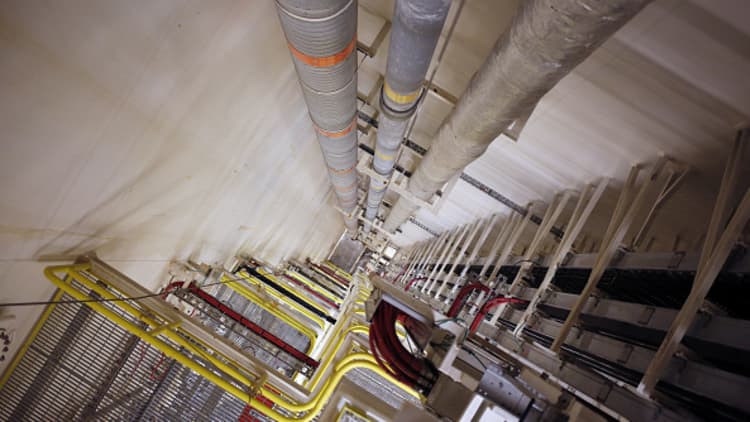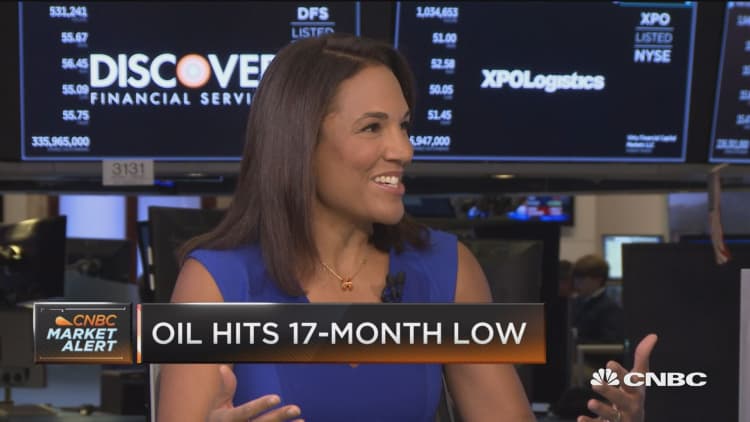President Donald Trump set in motion a vast rollback of energy, climate and environmental regulations during his first two years in office. Over the next two years, those actions will face intense scrutiny on Capitol Hill.
On Thursday, Democrats will take control of the House of Representatives and the committees that conduct government oversight. Within the first few months of the year, incoming committee chairs intend to hold a series of hearings to pick apart Trump's energy and environmental policies and what role industry insiders played in crafting them.
The Trump administration has targeted dozens of rules. Some of the biggest items on its agenda include withdrawing the United States from the Paris climate agreement, expanding drilling on federal lands, and watering down rules ranging from limits on greenhouse gas emissions from power plants to fuel efficiency in cars and trucks.
Rep. Raul Grijalva, the Arizona Democrat tipped to chair the House Natural Resources Committee, says Americans can expect the committee to probe the financial costs and public health risks associated with Interior Department policies under Trump. Those include rolling back methane emissions rules from oil and gas operations and making virtually all federally administered offshore waters available to drillers.
"The Trump administration has spent two years giving away the store to fossil fuel companies, and Republicans in Congress cheered every step of the way," says Grijalva. "We need to know what kind of impact this corporate favoritism is having on average Americans' health and quality of life."

With House Republicans wielding committee gavels during the first two years of the Trump administration, the president's deregulatory agenda has proceeded with minimal scrutiny. Now, administration officials and energy industry executives are bracing for a grilling on Capitol Hill.
"No one ever expects the Spanish Inquisition, which is what these guys are about to face," says Rich Gold, a partner at lobbying firm Holland & Knight, referencing the famous "Monty Python's Flying Circus" sketch.
Building a record to battle Trump
Gold, who heads his firm's public policy and regulation group, says the hearings create several opportunities for Democrats.
First, they will bog down the administration in requests for information, leaving it less bandwidth to continue slashing regulations. Second, the hearings create an on-the-record account detailing how the administration developed its policies and who it consulted to craft its agenda.
That record provides fodder for the many lawsuits aimed at defeating Trump's energy and environmental rollback. It can also be leveraged by Trump's challenger in the 2020 presidential contest to make the case that Trump put industry profits ahead of public health and climate action.
The hearings also present an opportunity for Democrats to trip up administration officials and damage the administration's credibility, says Gold.

Rep. Nancy Pelosi, who will likely become speaker of the House, last week opened another avenue to scrutinize Trump's policies with the creation of the Select Committee on the Climate Crisis.
Trump rejects the consensus among climate scientists that global warming is primarily caused by human activity and presents an urgent threat to the world. He dismissed a recent report by his own administration that climate-related impacts could shave 10 percent off the U.S. economy by 2100.
In a statement, Pelosi said, "The American people have demanded action to combat the climate crisis, which threatens our public health, our economy, our national security and the whole of God's creation."
Don't bet on big energy legislation
But with Congress divided and many Republicans still downplaying global warming risks, few Washington watchers expect much, if any, meaningful energy or climate legislation to emerge from Capitol Hill.
"I don't have high expectations about legislation," says David Konisky, associate professor at Indiana University Bloomington's School of Public and Environmental Affairs. "I think most of the activity from the Democrats will be oversight of policy and activities inside the EPA and the Department of Interior."
One area that could generate bipartisan support is carbon capture and storage, says Ben Finzel, president at Washington communications firm RenewPR.
The technology strips carbon emissions from power plants and other industrial activity and sequesters it underground. The process has not been proven commercially viable at scale, but it is widely seen as critical to mitigating the impacts of climate change because developing nations around the world are still building coal plants.
"The interesting thing about carbon capture is that it really is bipartisan and there are folks on both sides of the aisle in both chambers that like the concept of addressing at least a piece of energy policy, whether it be jobs or emissions reduction or technology innovation," says Finzel, whose clients include the Carbon Capture Coalition, which advocates for the technology.

Rebuilding American infrastructure is also seen as some of the most fertile ground for bipartisan compromise and could yield progress in the realm of energy. Democrats say they want an infrastructure bill to include provisions to modernize the nation's energy infrastructure, expand renewable energy and bioenergy and invest in energy efficiency and smart technology.
Gold, public policy head at Holland & Knight, says disagreements over how to fund infrastructure spending could be an obstacle, but it's one area where Trump is fairly content to let Congress hammer out the details. An infrastructure bill would also give him another legislative credential after two years with little to show in terms of bipartisan lawmaking.
"I think he has to go bold on something like that because if he doesn't, what he's done so far is not going to get him across the finish line" in the 2020 presidential election, he says.
But Democrats must also contend with intraparty fighting.
The party's progressive wing, led by freshman Rep. Alexandria Ocasio-Cortez of New York, is pushing for a "Green New Deal," a sweeping stimulus package that calls for generating all U.S. electric power from renewable sources within 10 years. Some centrist Democrats and members of the establishment worry the plan is unfeasible and threatens to alienate independents and moderate Republicans ahead of 2020 elections.
Ocasio-Cortez has taken a combative stance and says Pelosi's new select committee will be weaker than one the leader convened when she was last speaker of the House.
West Virginia Sen. Joe Manchin, a rare coal supporter within the Democratic Party, will also become the ranking member on the Senate Energy Committee. Environmentalists and progressives worry that Manchin will use the position to advocate for the coal industry, a powerful player in his state.
The White House did not respond to a request for comment.


